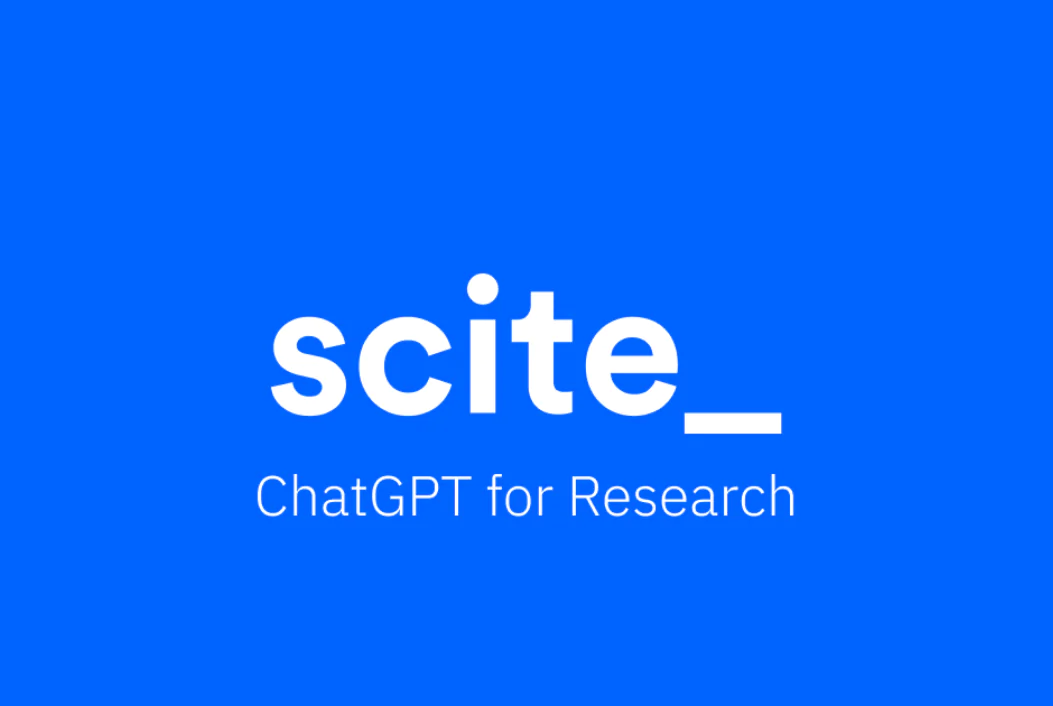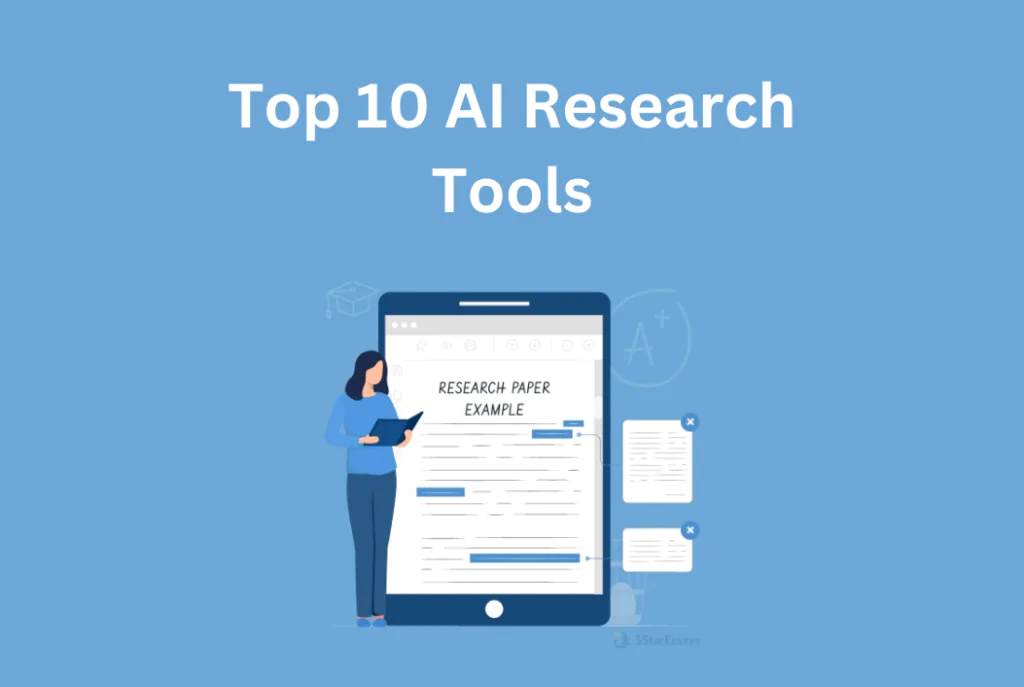Introduction to AI Research Tools
Research is the backbone of progress, driving innovation, and shaping the future. However, the sheer volume of information available can overwhelm even the most seasoned researchers, making efficiency paramount.
Imagine a world where the tedious task of sifting through endless journals and articles is no longer a barrier to discovery. With AI research tools, this vision becomes reality. From Semantic Scholar’s nuanced understanding of natural language to Zotero’s seamless organization of references, these tools empower researchers to transcend the limitations of traditional search methods. But their impact extends far beyond mere convenience; they are the catalysts for innovation, propelling academia into a new era of discovery and collaboration.
In this age of information abundance, the ability to distill vast datasets into actionable insights is a superpower possessed by few. Yet, with AI research tools at their disposal, researchers wield this power with unparalleled precision. Whether it’s IBM Watson Discovery’s knack for uncovering hidden patterns or Mendeley’s AI-driven recommendations, these tools enable scholars to unlock the mysteries of the universe with unprecedented clarity and efficiency.
But perhaps most importantly, AI research tools are not just tools; they are partners in the pursuit of knowledge. They are the silent companions standing shoulder to shoulder with researchers, guiding them through the complexities of the academic landscape. So, as we embark on this journey of exploration and discovery, let us embrace the transformative potential of AI research tools and chart a course towards a future where innovation knows no bounds.
The Rise of AI in Research: A Game-Changer
Artificial Intelligence (AI) has emerged as a powerful ally in the quest for research efficiency. By leveraging advanced algorithms and machine learning techniques, AI tools offer streamlined solutions to complex research tasks, revolutionizing the way we approach scholarly endeavors.
Semantic Scholar: Revolutionizing Literature Search

Understanding Semantic Scholar: A Breakdown
Semantic Scholar is a cutting-edge academic search engine that goes beyond keyword matching. It employs Natural Language Processing (NLP) to understand the context of research queries, delivering more relevant and comprehensive results.
How Semantic Scholar Utilizes NLP for Effective Search
NLP enables Semantic Scholar to analyze the meaning of text, recognizing concepts and relationships within documents. By understanding the nuances of language, it can surface papers that might otherwise be overlooked, enhancing the efficiency of literature searches.
Benefits of Semantic Scholar for Researchers
Researchers benefit from Semantic Scholar’s ability to sift through vast troves of academic literature quickly and accurately. Its intuitive interface and advanced search capabilities empower scholars to discover relevant papers, identify key trends, and stay abreast of the latest developments in their field.
Zotero: Streamlining Reference Management
An Overview of Zotero: Features and Functionality
Zotero is a robust reference management tool designed to simplify the citation process for researchers. Its features include the ability to capture, organize, and cite sources seamlessly, making it an indispensable asset for scholarly writing.
AI Integration in Zotero: Simplifying Citation Management
Zotero’s integration of AI technology enhances citation management by automating tedious tasks such as formatting and cross-referencing. By intelligently analyzing citation patterns, it ensures accuracy and consistency in scholarly writing.
Collaborative Research Made Easy with Zotero
Zotero facilitates collaboration among researchers by enabling shared libraries and collaborative annotation. Its cloud-based platform allows team members to access and contribute to a centralized repository of references, fostering seamless cooperation and knowledge sharing.
IBM Watson Discovery: Uncovering Insights from Data
Introducing IBM Watson Discovery: What Sets It Apart
IBM Watson Discovery is a cognitive search and content analytics platform that enables researchers to extract actionable insights from vast amounts of unstructured data. Its advanced AI capabilities empower users to uncover hidden patterns and trends, driving informed decision-making.
Harnessing AI for Data Analysis and Insights
IBM Watson Discovery leverages AI algorithms to analyze text, images, and other forms of unstructured data, extracting meaningful information with unparalleled speed and accuracy. By automating the process of data analysis, it frees researchers to focus on higher-order tasks, such as hypothesis generation and experimentation.
Real-world Applications of IBM Watson Discovery in Research
From pharmaceuticals to finance, IBM Watson Discovery has found applications across a wide range of industries. Researchers use it to sift through scientific literature, analyze market trends, and discover new insights that drive innovation and competitive advantage.
Mendeley: AI-Powered Reference Management

Exploring Mendeley’s Features: Beyond Basic Reference Management
Mendeley is more than just a reference management tool; it’s a comprehensive research ecosystem. In addition to organizing and citing sources, it offers collaboration features, personalized recommendations, and AI-driven insights that enhance the research experience.
Leveraging AI for Literature Organization and Collaboration
Mendeley’s AI algorithms analyze user behavior and content metadata to provide personalized recommendations and suggestions. This not only streamlines the process of discovering relevant literature but also fosters collaboration by connecting researchers with shared interests.
Enhancing Research Workflows with Mendeley’s AI Capabilities
By seamlessly integrating AI into every aspect of the research process, Mendeley helps researchers work more efficiently and effectively. Whether it’s identifying relevant papers, generating citations, or collaborating with peers, Mendeley’s AI capabilities enhance every stage of the research workflow.
Scite.ai: Evaluating Scientific Articles with AI

The Role of Scite.ai in Assessing Research Credibility
Scite.ai is a revolutionary platform that uses AI to evaluate the credibility of scientific articles. By analyzing citation patterns and identifying supporting or contradicting evidence, it provides researchers with valuable insights into the reliability and impact of published research.
How Scite.ai Uses Machine Learning to Analyze Citations
Scite.ai employs state-of-the-art machine learning algorithms to analyze citation contexts and assess the veracity of claims made in scientific articles. Its sophisticated AI models can distinguish between supportive, neutral, and contradicting citations, helping researchers make informed decisions about which papers to trust.
Empowering Researchers with Informed Decision Making
By providing researchers with access to a wealth of citation data and analysis, Scite.ai empowers them to make more informed decisions about which studies to incorporate into their work. This not only improves the quality of research but also accelerates the pace of discovery by facilitating the identification of relevant and impactful literature.
Grammarly: Improving Writing Quality with AI
Enhancing Writing Clarity and Grammar with Grammarly
Grammarly is an AI-powered writing assistant that helps researchers improve the clarity, correctness, and coherence of their writing. Its advanced algorithms analyze text for grammatical errors, punctuation mistakes, and stylistic inconsistencies, providing real-time feedback and suggestions for improvement.
Leveraging AI for Proofreading and Editing Research Papers
Grammarly’s AI algorithms go beyond basic grammar checking to offer advanced editing suggestions tailored to the specific needs of academic writing. It can identify complex sentence structures, ambiguous phrasing, and other common pitfalls that can detract from the clarity and coherence of research papers.
Integrating Grammarly into the Research Writing Process
By integrating Grammarly into their writing workflow, researchers can ensure that their papers meet the highest standards of clarity and professionalism. Its intuitive interface and seamless integration with popular word processing software make it easy to incorporate AI-powered editing into every stage of the research writing process.
EndNote: Managing Citations Seamlessly

Understanding EndNote’s Role in Citation Management
EndNote is a comprehensive reference management tool that helps researchers collect, organize, and cite sources in their work. Its robust features and intuitive interface make it an essential tool for scholars across disciplines.
AI Features in EndNote: Automating Citation Formatting
EndNote’s AI-powered citation formatting capabilities streamline the process of generating bibliographies and ensuring consistency in citation style. By automatically formatting citations according to the user’s preferred style guide, it saves researchers valuable time and effort.
Simplifying Collaboration and Citation Sharing with EndNote
EndNote’s cloud-based platform enables seamless collaboration and citation sharing among researchers. By providing a centralized repository of references that can be accessed and edited by multiple users, it fosters collaboration and knowledge exchange within research teams.
Paperspace: Accelerating AI and Machine Learning Experiments

The Advantages of Paperspace for AI Research
Paperspace is a cloud computing platform specifically designed for AI and machine learning experiments. Its powerful infrastructure and user-friendly interface make it an ideal choice for researchers seeking to accelerate the pace of their research.
Leveraging Cloud Computing for Faster Experimentation
Paperspace’s cloud-based architecture enables researchers to run AI and machine learning experiments at scale, without the need for costly hardware investments. By leveraging the power of distributed computing, it significantly reduces the time and resources required to train and test models.
Real-world Applications of Paperspace in Research
From image recognition to natural language processing, Paperspace has found applications in a wide range of research domains. Researchers use it to train and deploy AI models, analyze large datasets, and conduct simulations that push the boundaries of scientific knowledge.
Meta (formerly Sciencescape): Navigating the Research Landscape
How Meta Uses AI to Provide Insights and Recommendations
Meta is an AI-powered platform that helps researchers navigate the vast landscape of scientific literature. By analyzing millions of papers and extracting key insights, it provides personalized recommendations and suggestions that enable researchers to discover new connections and ideas.
Enhancing Literature Discovery and Analysis with Meta
Meta’s advanced AI algorithms analyze the content of scientific papers, identifying key concepts, relationships, and trends. By surfacing relevant literature and highlighting important insights, it helps researchers stay up-to-date with the latest developments in their field and make informed decisions about their research.
Collaborative Research Made Efficient with Meta’s AI Tools
Meta’s collaborative features enable researchers to share and discuss papers, annotations, and insights with colleagues around the world. By fostering collaboration and knowledge exchange, it accelerates the pace of discovery and innovation, driving progress in the scientific community.
DeepDyve: Accessing Research Articles with AI-Powered Search

DeepDyve: A Comprehensive Overview
DeepDyve is a pioneering platform that leverages AI to make research articles more accessible and affordable. By providing subscription-based access to a vast library of scientific literature, it democratizes access to knowledge and accelerates the pace of research.
AI Algorithms Behind DeepDyve’s Article Search
DeepDyve’s AI algorithms analyze user queries and content metadata to deliver relevant and accurate search results. By understanding the context of research queries and surfacing papers that match the user’s interests, it enhances the efficiency of literature searches and discovery.
Enhancing Research Accessibility and Efficiency with DeepDyve
DeepDyve’s subscription model and AI-powered search capabilities make it easier than ever for researchers to access and discover relevant literature. By removing barriers to access and streamlining the process of literature search, it empowers researchers to find the information they need quickly and efficiently.
Conclusion
The Future of Research Efficiency: AI as a Catalyst for Innovation
As AI continues to advance, its role in enhancing research efficiency will only grow stronger. From literature search and citation management to data analysis and collaboration, AI tools offer researchers powerful capabilities that enable them to work faster, smarter, and more effectively.
Embracing AI Tools for Enhanced Productivity in Research
By embracing AI tools, researchers can unlock new possibilities and accelerate the pace of discovery across all fields of study. From streamlining mundane tasks to uncovering new insights and connections, AI has the potential to revolutionize the way we conduct research and drive innovation forward.
FAQ
1. What are AI research tools?
- AI research tools are software applications that leverage artificial intelligence and machine learning algorithms to assist researchers in various aspects of their work, such as literature search, reference management, data analysis, and collaboration.
2. Why are AI research tools important?
- AI research tools play a crucial role in enhancing research efficiency by automating tedious tasks, streamlining workflows, and providing valuable insights that accelerate the pace of discovery and innovation in academia.
3. How do AI research tools revolutionize literature search?
- AI research tools, such as Semantic Scholar and DeepDyve, revolutionize literature search by employing natural language processing (NLP) algorithms to understand the context of research queries, deliver relevant results, and make scholarly articles more accessible.
4. What role do AI research tools play in reference management?
- AI research tools like Zotero and Mendeley streamline reference management by automating citation formatting, organizing references, and facilitating collaboration among researchers, thereby simplifying the process of citing sources in research papers.
5. How do AI research tools uncover insights from data?
- AI research tools, such as IBM Watson Discovery and Paperspace, harness the power of artificial intelligence to analyze large datasets, identify patterns, and extract actionable insights that drive informed decision-making and advance scientific knowledge.
6. How do AI research tools evaluate scientific articles?
- AI research tools like Scite.ai utilize machine learning algorithms to evaluate the credibility of scientific articles by analyzing citation contexts, identifying supporting or contradicting evidence, and empowering researchers to make informed decisions about which papers to trust.
7. How do AI research tools improve writing quality?
- AI research tools like Grammarly enhance writing quality by providing real-time feedback and suggestions for improving grammar, punctuation, and style, thereby helping researchers communicate their ideas more effectively in research papers and publications.
8. How do AI research tools manage citations seamlessly?
- AI research tools such as EndNote automate citation management by formatting citations according to the user’s preferred style guide, simplifying collaboration and citation sharing among researchers, and ensuring accuracy and consistency in scholarly writing.
9. How do AI research tools accelerate AI and machine learning experiments?
- AI research tools like Paperspace provide cloud-based infrastructure for running AI and machine learning experiments at scale, leveraging distributed computing to reduce the time and resources required for training and testing models, and accelerating the pace of research in the field.
10. How do AI research tools navigate the research landscape?
- AI research tools like Meta (formerly Sciencescape) use artificial intelligence to provide insights and recommendations for navigating the vast landscape of scientific literature, enhancing literature discovery and analysis, and facilitating collaborative research efforts among scholars.
Learn more about AI Tools.



I would argue that someone played a significant role in producing a thoughtful post. Having just visited your website for the first time, I’m astonished at the sheer volume of research you performed to create this specific piece. Excellent effort.